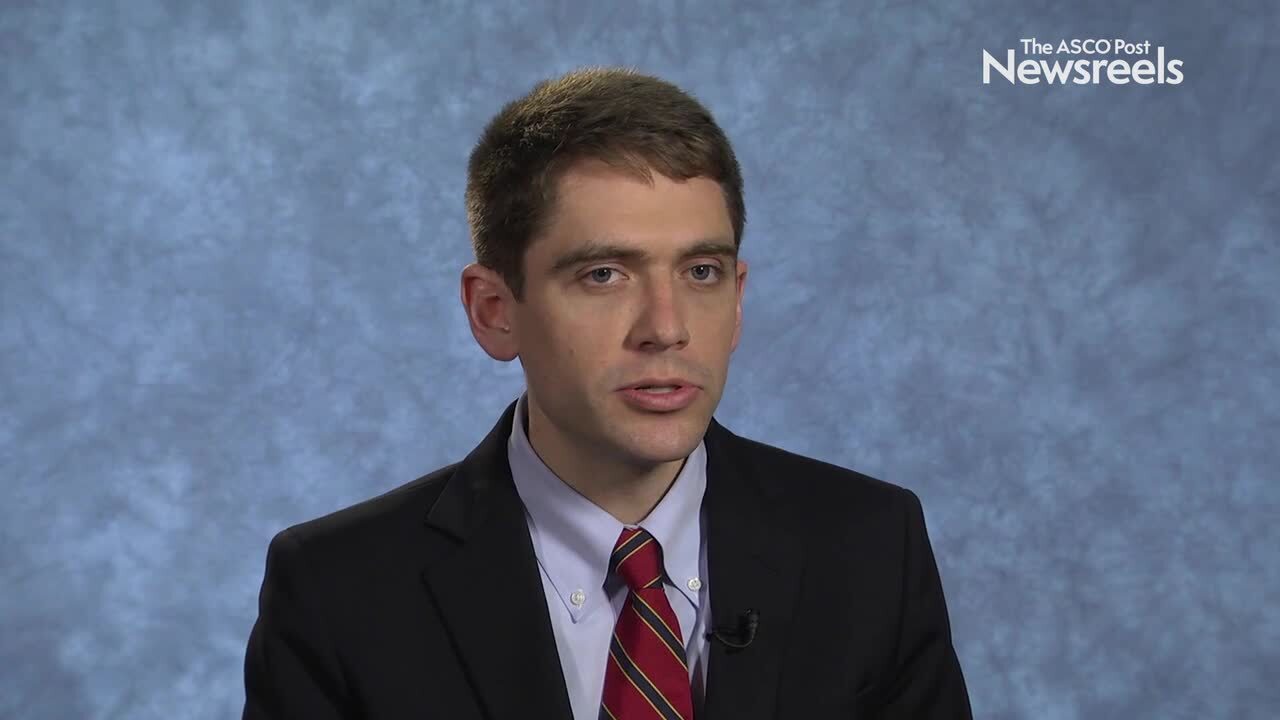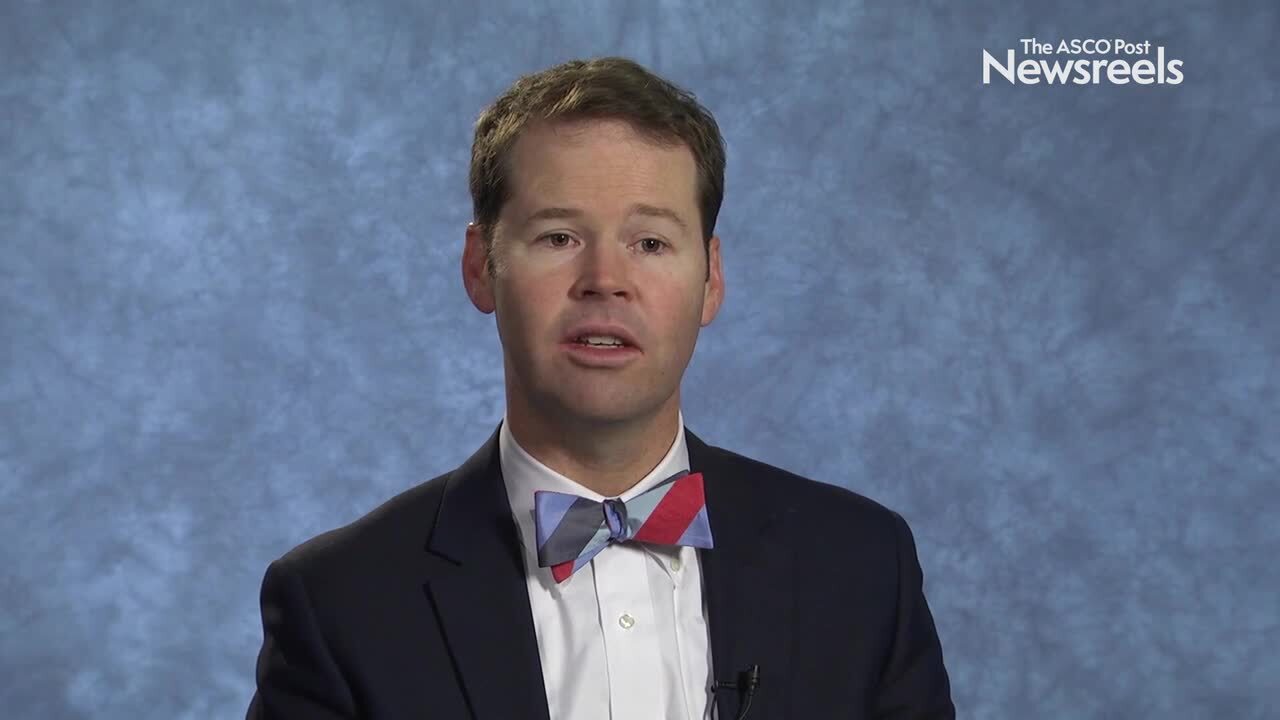Vinai Gondi, MD, on Treating Brain Metastases, Preserving Cognitive Function
2018 ASTRO Annual Meeting
Vinai Gondi, MD, of Northwestern Medicine, discusses the early results of a phase III NRG Oncology trial that suggests a practice change in treating brain metastases: avoiding the hippocampus when delivering whole-brain radiotherapy (Abstract LBA9).
Michael Soike, MD, of Wake Forest University Medical Center, discusses results from a large multicenter study that suggests salvage stereotactic radiosurgery leads to improved overall survival compared with whole-brain radiotherapy for patients with progressive brain metastases (Presentation 296 in Scientific Symposium 40).
Thomas Galloway, MD, of Fox Chase Cancer Center, summarizes a session on head and neck cancer that included findings on reducing oral mucositis, improving quality of life with deintensified chemoradiotherapy, and the costs of dose de-escalation (Scientific Session 31).
David Raben, MD, of the University of Colorado, discusses overall survival with durvalumab vs placebo after chemoradiotherapy in stage III non–small cell lung cancer (Abstract LBA10).
Alan Pollack, MD, of the University of Miami, discusses study findings on short-term androgen-deprivation therapy with or without pelvic lymph node treatment added to prostate bed–only salvage radiotherapy (Abstract LBA5).
Daniel R. Gomez, MD, of The University of Texas MD Anderson Cancer Center, discusses the final results of a phase II study on local consolidative therapy, which improved overall survival compared with maintenance therapy and observation in oligometastatic non–small cell lung cancer (Abstract LBA3).





